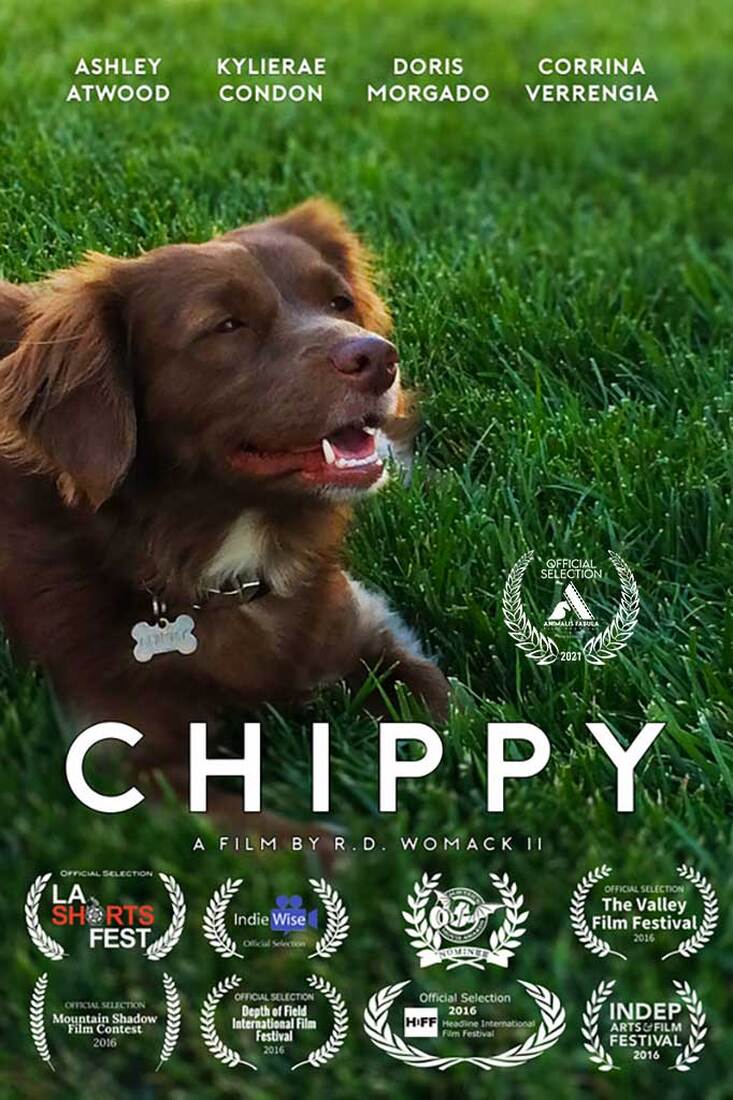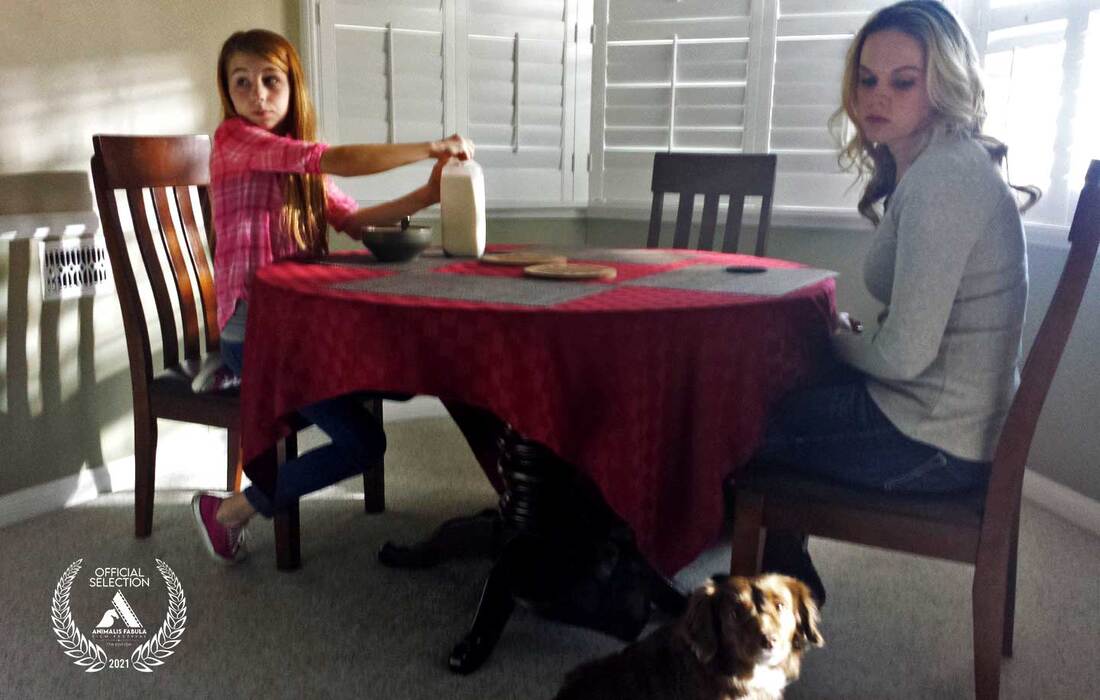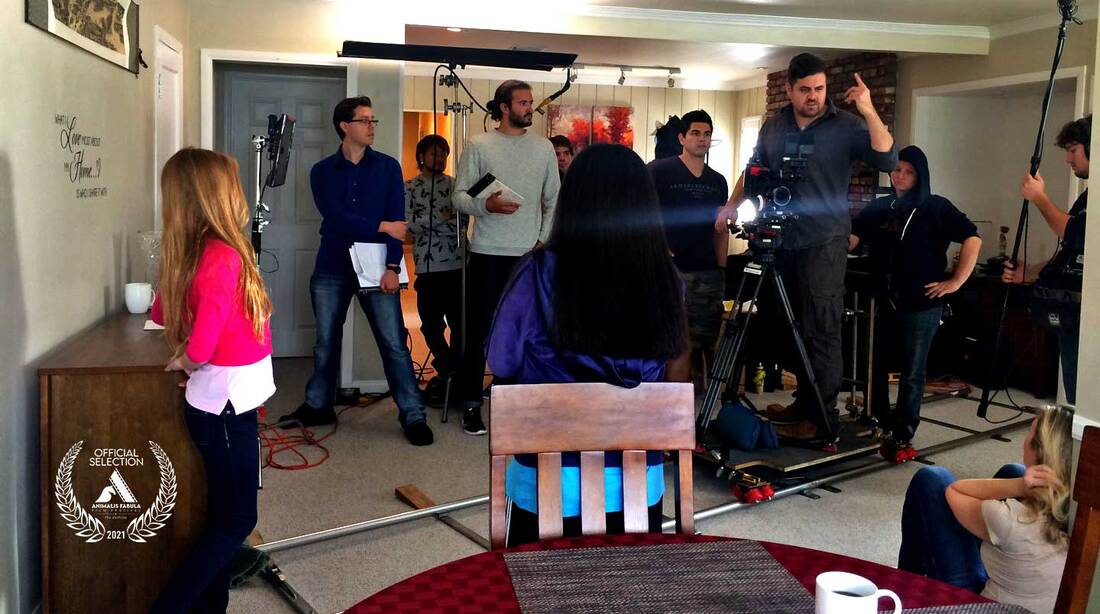|
Filed By:
Gabriel Ponniah, Editor In Chief Austin Alternative Screen Scene When I was a young child, I lived down the street from an older couple who owned a whole mess of whippets. I’m told they’re downright lovely, the dogs and the people, but my distinguishing memory of them is of being knocked over and scuffing my knee, back when the whippets stood as tall as me. My parents apologized for my tears and took me home; the couple and their whippets went about their morning walk. Life went on. Not all such situations pass without incident, as shown in the narrative short Chippy. On occasion, a good dog will make a bad choice, and in this day and age such occasions are ripe with Karenesque potential. Chippy examines a dog bite gone wrong. The film follows a single mother Melissa and her daughter Alison, whose dog Chippy bites Alison’s friend while playing. Later, Chippy is taken by Animal Control at the behest of Alison’s friend’s mother, out of an abundance of concern for the children’s safety. Alison is distraught at this injustice, while Melissa is helplessly crushed by the plight of the single mother. The story realizes writer/director R.D. Womack II’s hopes to advocate for adoption by demonstrating not all dogs who have a single aggressive incident are necessarily aggressive animals (while attempting to show solidarity for the gender gap in media). In 8 minutes, Chippy packs in as much drama as it can muster. The sleek lighting and editing make for a convincing presentation of the copious amounts of acting going on. Indeed, these strong decisions ensure Womack’s point comes across unambiguously, and his intent is admirable. One wonders, though, if the film’s message is encumbered by unconvincing dialogue from overzealous, archetypal performances in wholly unbelievable situations. Alison’s friend is driven into a vindictive frenzy playing tug of war with Chippy in a way no child has ever behaved upon meeting a new dog, and her mother swiftly highroads Melissa in having her neighbor's property surrendered to Animal Control. The film ends with Alison firmly blaming her mother for this misfortune, and a hapless Melissa at her wits’ end, the single white affluent mother besieged by the whims of her ethnically ambiguous neighbors. What’s more, Womack states his intent to explore the dynamic between daughters and mothers that”has been largely ignored by the filmmaking community.” While he’s getting at a very real issue, when the representation is this stale and clearly from an outsider’s (read: man’s) perspective, such progressivism tends to come off as crass rather than supportive, and his statement suggests he himself may be a member of the community doing the aforementioned ignoring. Messaging is essential to storytelling—especially issue films like Chippy vis-à-vis ‘aggressive’ dogs. But even after peeling back the unintentional demographic framing, even after ignoring the tropes and their clumsily intense execution, the message is hardly controversial, even downright simple. At 8 minutes, Chippy may already be short, but it could surely be tightened to 5 in the interest of keeping an audience’s attention. Other films at AniFab have more quickly and more elegantly brought up the perception versus reality of ‘aggressive’ breeds like pit bulls, and perhaps such a breed would have made for a more theoretically streamlined casting choice for the titular role. R.D. Womack II has recently completed his debut feature film When the Wolf Calls, and his ability to get a feature made in today’s Los Angeles is thoroughly impressive. I hope the feature runtime allows him the space for subtlety in his writing and direction. In many ways, Chippy reminds me of the content of Dhar Mann’s—a YouTuber who creates straightforward, stilted Aesops of the modern day, and while I sure have my gripes with his poetics, I can’t disagree with the wholesome spirit behind his endeavor. Despite my criticisms, I think I can extend the same grace to Mr. Womack here. |
Get tickets for any #AniFab22 screening:ATX Screen Scene
The ArchAngel of Austin Archives
January 2022
|






 RSS Feed
RSS Feed



